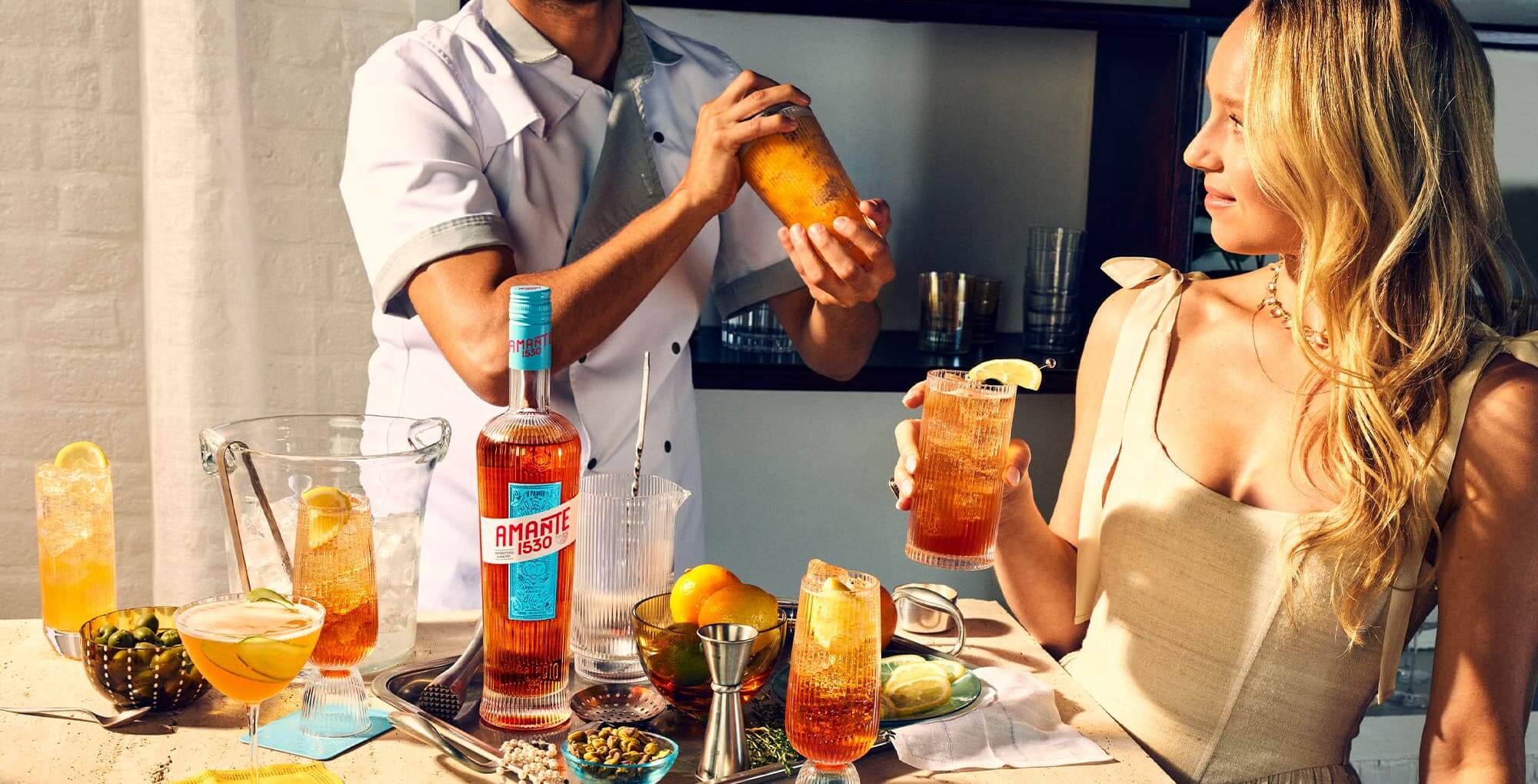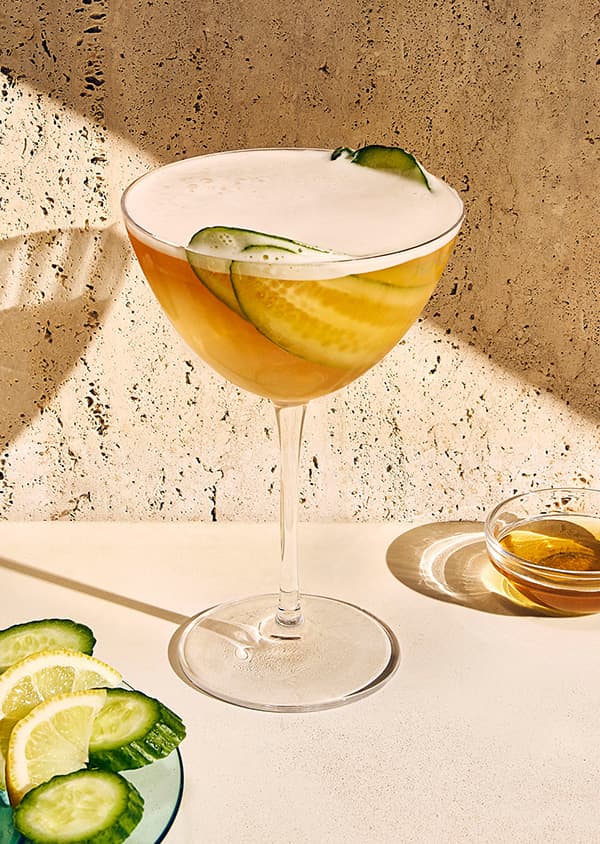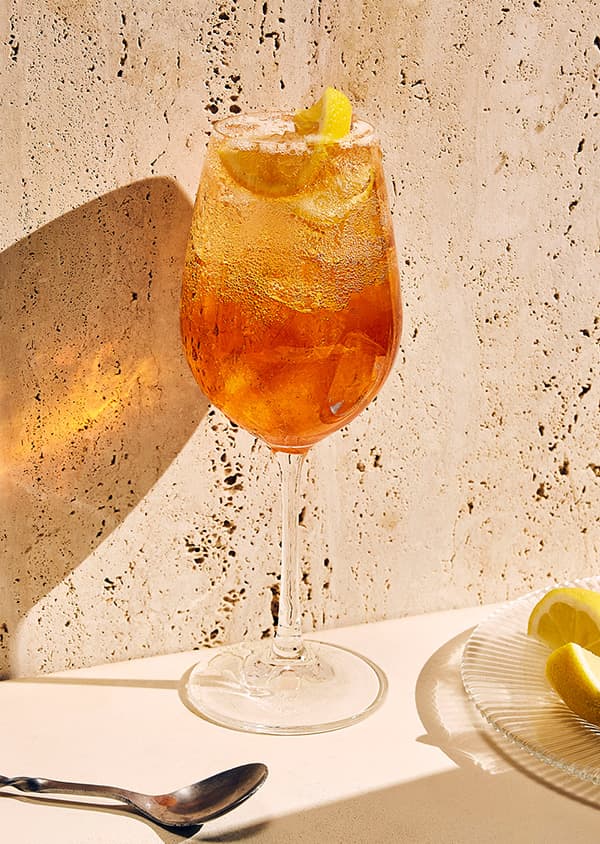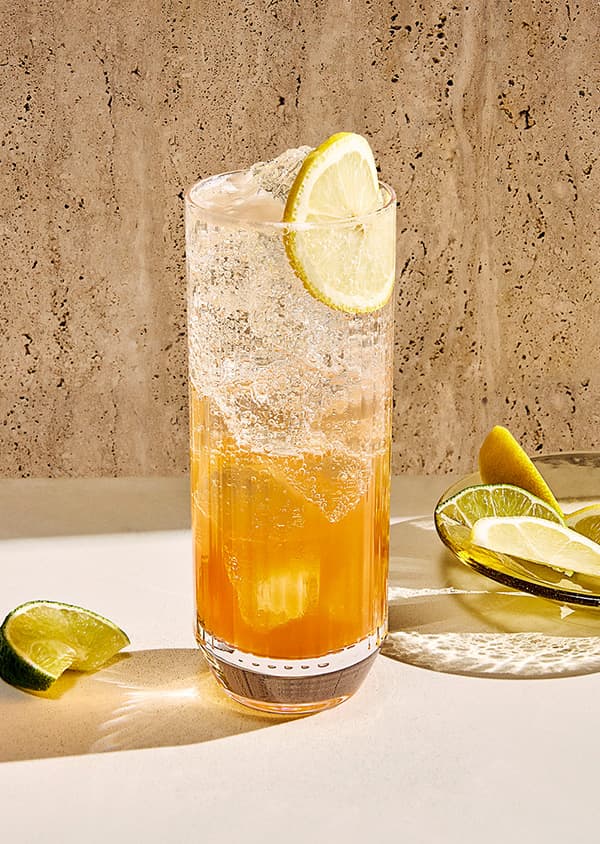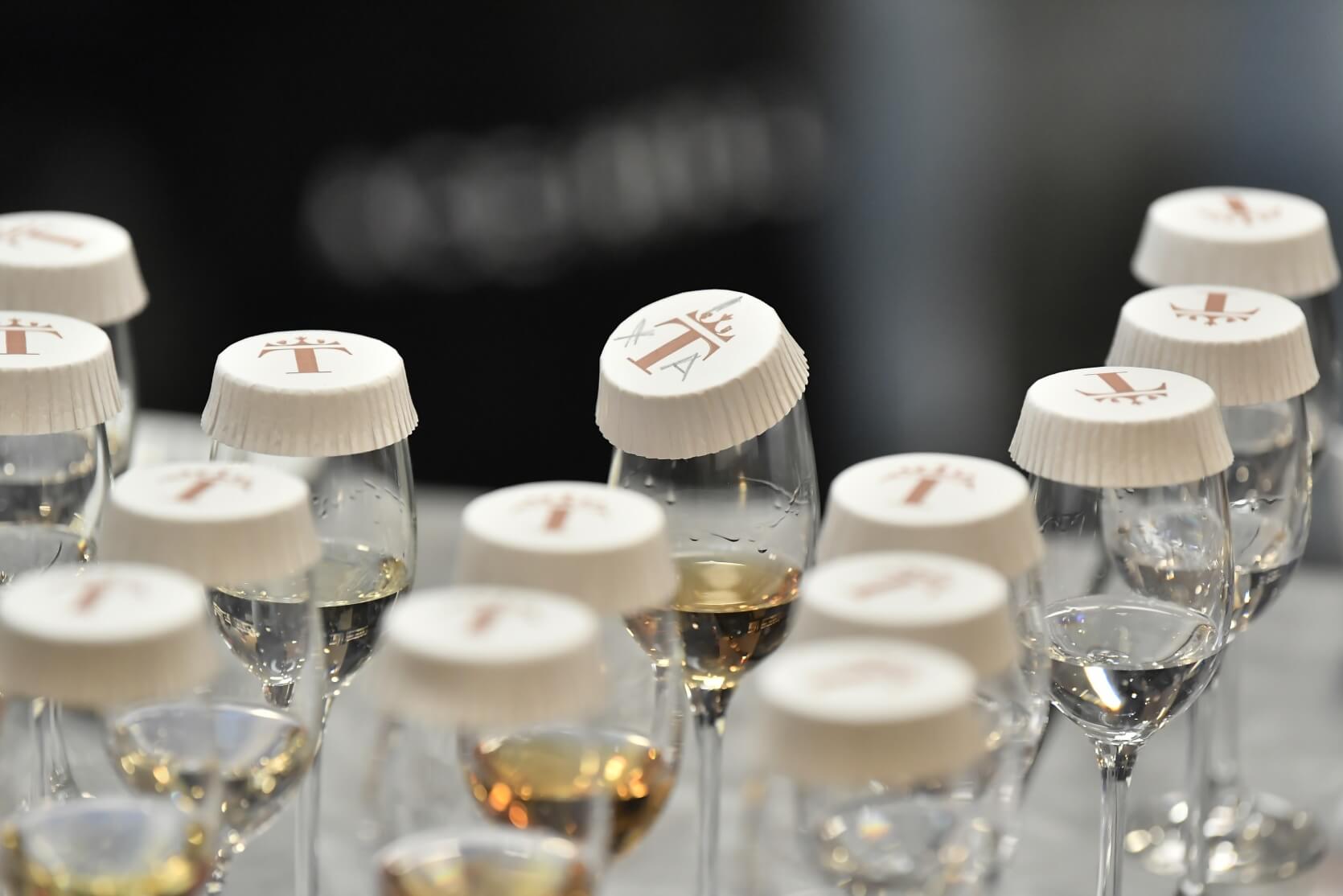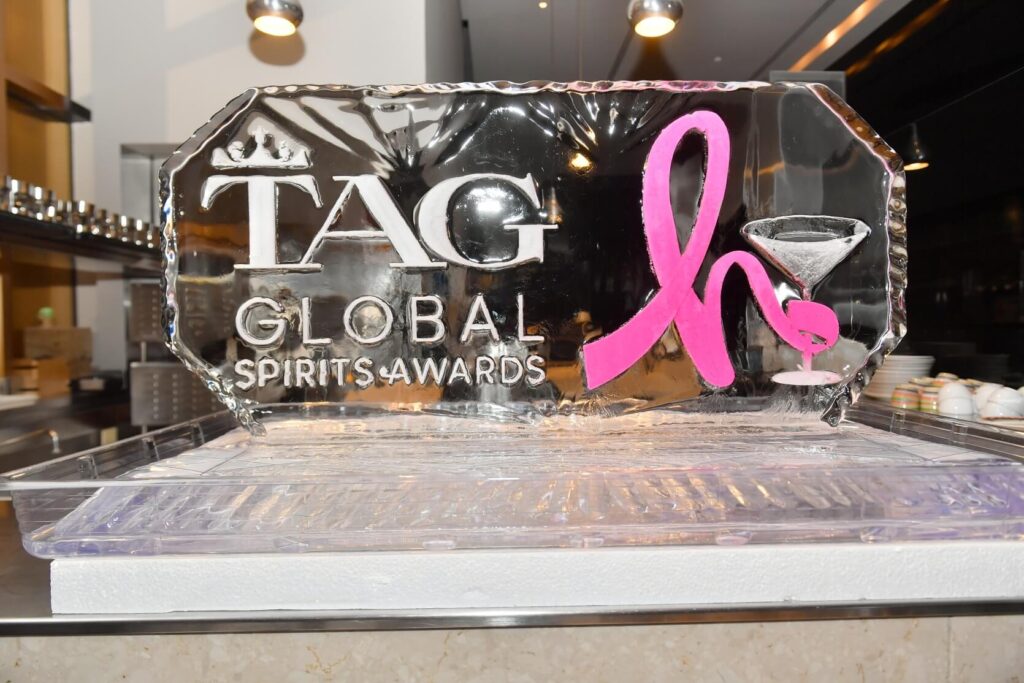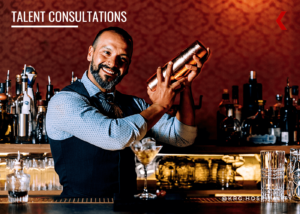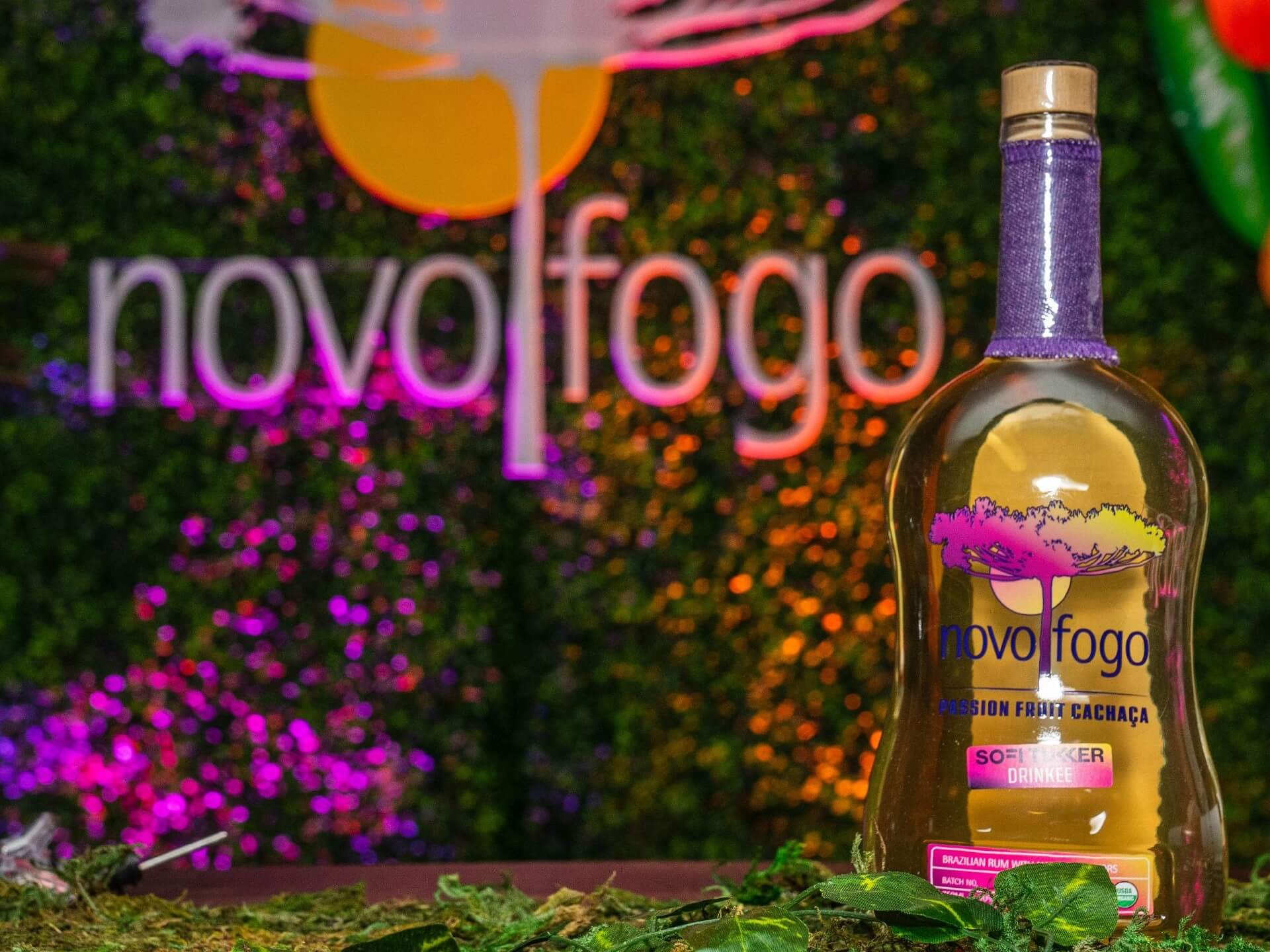Bar Hacks: ReFire: Episode 1, Part 1
by David Klemt
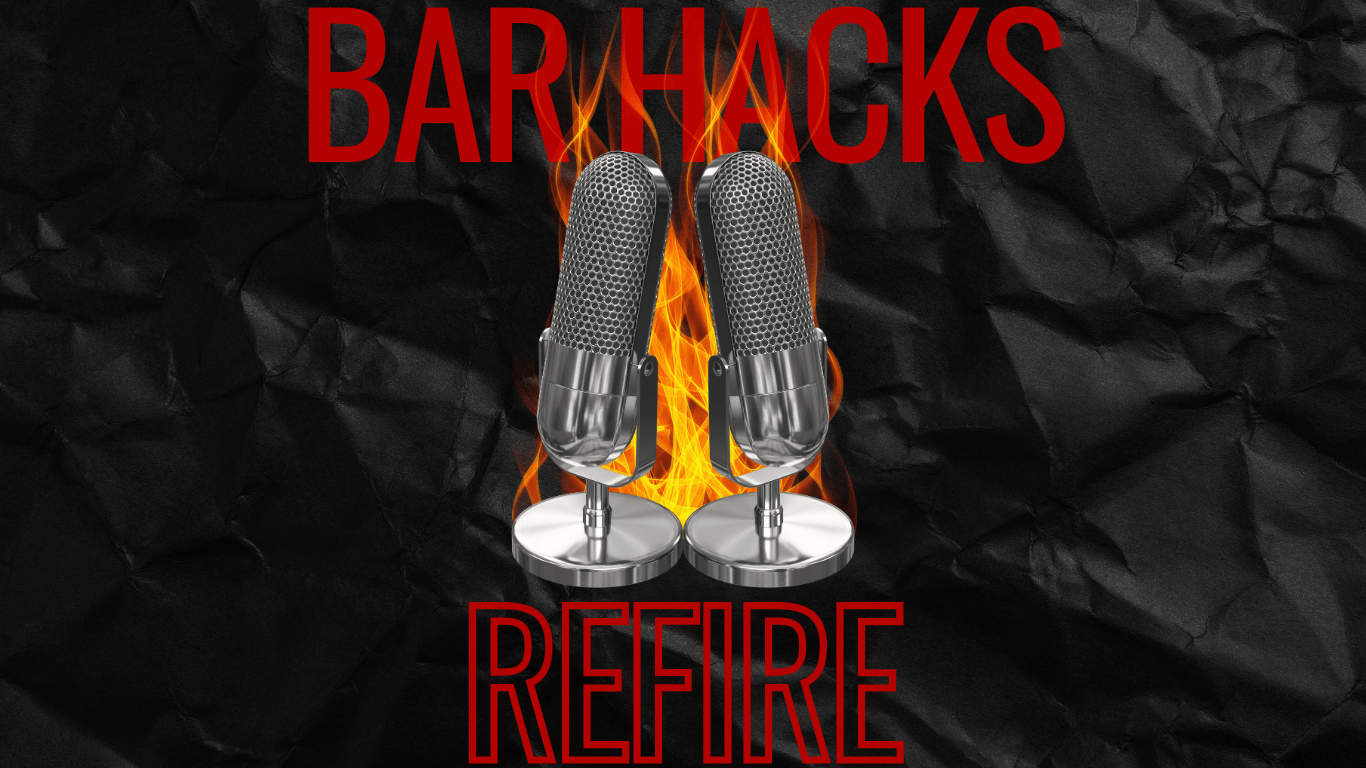
In the latest episode of the Bar Hacks podcast, I introduce an innovative format called Bar Hacks: Refire, tackling real-world hospitality scenarios.
Joined by Bradley Knebel, client services director at Empowered Hospitality, the first episode offers a fresh perspective on managing bar and restaurant challenges.
The discussion kicks off with a focus on staff management, addressing the question of rehiring former employees. What may seem like a simple question proves to be anything but when Bradley and I break down the interplay of labor shortages, cultural fit within a team, and other key elements.
Our goal, as it will be with every episode of ReFire, is for listeners to gain valuable insights into the decision-making process behind giving second chances, and the impact of such decisions on team dynamics.
Whether you’re a bar owner, manager, or aspiring hospitality professional, this episode offers a wealth of knowledge and strategies to navigate the challenges of running a successful bar or restaurant.
Below, a transcript of the first part of the first episode of Bar Hacks: ReFire. Bradley and I jump into each scenario cold (for the most part), so the tone is conversational rather than formal. Cheers!
Transcript: Bar Hacks: ReFire: Episode One
David: Hey, welcome back to the Bar Hacks podcast… We’re gonna try something a little different today with the format, and I’m kind of playing around with it. I think I’m gonna call it Bar Hacks: ReFire because we’re giving people a second bite of the apple for a situation that maybe we read about that we don’t agree with, or that we can study and kind of revisit as a way to give some advice.
But my guest today is Bradley Knebel. He is the client services director at Empowered Hospitality. He worked for, I wanna say a decade, for Danny Meyer’s Union Square Hospitality Group until a couple years ago. He was the GM of Tatiana, and he helped bring that restaurant to, I believe, a three-star review in The New York Times. It has also been recognized as the number one restaurant in New York City during its tenure. And we met at this year’s Flyover Conference, me and Bradley, and we were hanging out with the founders of that show, Sarah Engstrand and Greg Newman. (And just a little drive-by on Dave Kaplan, as well, was hanging out with us, of Death & Co.)
We just had some really great conversations, and some good drinks, and really good pizzas at that one spot. They were, I think, wood-fired out of a food truck. Really good. So, I was doing my second ever public speaking engagement, which was still nerve wracking for me. I know I do a podcast, but this is completely different than talking to a room full of industry experts and industry newbies who are hoping I can tell them something good. And I think, Bradley, it was your first public speaking since Empowered Hospitality and doing your thing over there, and you and Kaplan were nice enough to sit in on my session and actually ask me questions that were helpful for everyone else, and yourselves.
So, I had this idea bopping around in my head about a different podcast format, because I was like, “Well, I do interviews, but I don’t always get the chance to address, you know, operator topics and server topics, and bartender and chef topics, because I want the audience to learn from the expert that I’ve got on.” That’s my very long-winded way of saying, welcome, Bradley, and let’s try this new podcast format.
Bradley: Hi, Dave, thanks for having me. I’m super excited about this. I think it’s going to be a really fun format, and I like the Bar Hacks: ReFire because we’ve all had to refire something that didn’t come out right. Or you accidentally overcooked something because something else comes up in the moment, and you just totally forget that you have something cooking. So, I love the name. And also, for your second public speaking, I thought you did incredibly well. I certainly enjoyed your conversation, and it was also so relevant to what you do, and kind of what you and I have talked about in the past of like, how do you build successful restaurants from the ground up and where do you start? And we’ve even joked about how many people we’ve met who just say, “I have money, I want to open a restaurant. Let’s do this,” and don’t realize how hard it is. So, really excited to dive in on some of these questions we have today, and thank you so much for having me on the show today.
David: Absolutely. And hopefully we do many more of these.
The ReFire Format
David: So, for the audience, what happened is, I sifted through… I’m basically going through online—there’s subreddits that, basically, everybody knows there’s a subreddit for everything. Good or bad, there’s a subreddit for it. Servers have a subreddit. Bartenders, chefs, bar owners, restaurant owners, hotel owners… I mean, they all have subreddits. And then there’s just, you know, forums all over the internet. You can find pretty much any topic. And so, I’m kind of sifting through these for real-world situations. And the caveat there is we’re gonna take these at face value, for the most part. Unless someone is like, “I’m just kidding,” like, “I got you all like in the comments…”
But we’re going to accept that these are really happening, because anyone in the industry knows if you’ve been in there, you know, for a few years, everything happens in this industry. So, a lot of this stuff is believable, even as outlandish as it might sound. The only thing I’m going to do, really, and Bradley’s going to do when we bring these topics up, is we’re not going to read them verbatim. We’re going to summarize. And the reason for this is I don’t want people to get doxxed. I don’t want them to, you know, get review bombed because someone decided, “I’m going to side with the server on this and let’s review bomb this operator.” You know, things like that.
So, we’re trying to be general but still get to the crux of the situation, and I’m sure they’ll get more specific as we go. I chose three to start with; hopefully, we get to all three. If we have a great conversation on, like, the first one or two, we’ll save the third one, or you know, however it works, for the next one. But that’s how this is gonna work. I’m sure it’ll evolve, ‘cause I’m not, like, a strict, like, “Oh, this is how it’s going to be” ‘cause it’s quote-unquote “my podcast,” because I’m not like that. We’re going to have fun with this.
Situation 1: Second Chances? Hire Hard, and Manage Harder
David: Situation one is interesting. So, this is written ostensibly by a bar and restaurant owner, and we can all relate to this, you know, the past couple years. This one said the past year or so he’s had trouble—actually, I don’t know if it’s a he or she, I shouldn’t even say that—they have had trouble finding and keeping staff, and when they do keep them, keeping them happy.
So, the kitchen has two or three cooks. It’s a relatively small team. When it’s busy in the restaurant there are, from what I can interpret, there are two cooks on. And when it’s slow, one cook is doing everything. Pretty standard for a small operation, I would say. (These days, you’re trying to control labor costs. My business partner Doug will say, “We don’t cut costs, we control them.” You start cutting things and it can get ugly, and it’s a whole other can of worms. I’m sure Bradley would agree with that.)
They had a new hire, seemed perfect. From what I understand, they were a good fit because everybody relies on one another. Like, “Hey, I need to take this day off. Can you take this?” It’s very…it seems informal. They can just talk to each other and get things done. But because It’s a small team, they need someone reliable, which is what they thought they had. This is a part-time worker; they had another job.
Within that first month, just a slew of, just, unfortunate events struck this new hire, and they could not, they couldn’t sustain it. And so, they gave no notice—they just quit. The operator didn’t freak out in the, in the post, was just like, “That’s really disappointing that they didn’t even, you know, text me like, ‘Oh, I can’t do this for another two weeks.’” But it does seem like real life got in the way, and this person wouldn’t probably have been able to reliably give, you know, two weeks or a week.
However, a couple weeks after that happened, the person came to get, I assume, their first paycheck. Their last, but I’m assuming their only, paycheck. And I don’t think the operator was there. They talked to the lead chef, and they apologized, and they expressed that they had stabilized everything, and just a bad time all at once, basically. And they would really love to come back. And, in fact, they would like to come back full time. So, I don’t know if that means that, the job they lost, they couldn’t get that back, or they were just like, “You know what? I actually like this place. I would like to be here full time.”
And so, the whole point of the post was, do you give second chances? Or would you give second chances to someone who just quit and then shows up for their paycheck? So, because of what Empowered does, specializing in HR and things like that for this industry, I figure we’ll go with you first on this topic and see what your initial thoughts are.
Tornado People
Bradley: Yeah, I think some things that are really interesting about this question, and thanks for passing it over, is it was a really short tenure before the person left. Right? So, this cook in question was there for, I think it sounded like a month. And then because of life… And I think it’s important in this instance to state that the incidents that led to this employee leaving were outside of the workplace, and I think that’s an important distinction here. So, there were things that happened in this employee’s personal life. It was losing a job and some other pretty unfortunate situations that led to them basically leaving with no notice, which is never a great sign. That feels really terrible. As an operator, you’re now scrambling. You thought you had your plans in place. And for such a small team, as you mentioned earlier, if it’s a team of three or four people, losing one is a massive part of that labor force.
So, I think the flag here is: Do you think it’s repeatable? Do you think that that one blip and moment was a really unfortunate circumstance? We’ve all met—I like to call them tornado people, where for good or for bad, things just spiral around them. Things are just never going well. There’s always: breaking this lease; I had to leave; I had to move out of this apartment; I just lost this job; you know, my partner just said this. And so, if it’s somebody who is just a tornado person, it’s going to kind of keep revolving back. So, I would be really worried with this employee and with this hire. Is this a pattern? Just a pattern you saw a single piece of that becomes unreliable?
And also, can you trust this person again? Especially because the kitchen is run on a singular body during, I’m assuming, lunches, Sunday, Monday, Tuesdays… You know, if this person is working a Monday dinner, how confident are you now that they’re going to show up? Labor is hard right now. You’re seeing a massive labor shortage, especially in the culinary world. There’s a huge disparity in the back of house right now, and it’s real. But you also need to make sure you’re hiring the right thing. And you mentioned earlier, I worked for Union Square Hospitality Group for Danny for a long time, and one of our big tenets, when it came to talent and came to people, was “hire hard, and manage harder.” It’s finding the right fit, and sometimes it can be really challenging. That does mean having to jump in. And as anybody who’s worked in this industry long enough knows, that sometimes mean you’re washing dishes by yourself at 1 am because your dishwasher stormed out, or your dishwasher is now covering a prep station, or, you know, one of the other crazy things that just happens in this industry.
So, my big thing to question here is, do you think this is a pattern? Is this something that’s going to happen again? Do you think you can trust this employee again? And then my biggest question also was, what was it about this employee that made them, quote-unquote, a perfect fit? Was it because they just didn’t complain and did their job well, or were they adding to the culture? So, if they were adding to the culture, if they were adding to the standards, if they were really building themselves in the space, then I, I think a second chance could be warranted, knowing all the life circumstances that went into it. But if this person was a good fit just because they came in usually on time, usually did what they were supposed to do, and left the station usually clean, I just… The risk of having another month spiral out to me is a really big concern, especially for a team that small, and for a team who has to operate on their own pretty consistently.
Two Minds
David: And then the other question is, so you, let’s say now we’re, we’ll bring you back. And then the question becomes, what kind of limitations do you put on this? Because I’m of two minds.
Okay, well, the apology does go a long way, I appreciate that. Maybe the owner wasn’t on property when the person came. And then the question in the back of my head would be, did you plan that so you don’t have to deal with the owner, and you apologize to the cook because maybe you respect other chefs, but you don’t really respect the owner, or you just didn’t wanna deal with the owner, or they just happen to not be there and you want to apologize to everybody who you affected. That’s possible.
But then you start doing the, you know, okay, well, we need to do, like, a 60-day probationary period, or a 90-day. And while I do agree with those, sometimes, I do think they do affect the culture, and they affect your employees. Like, “Right, I have this constant, like, just spotlight on me. I’m afraid to make any mistake.” Or what if legitimately something just happens? Like, okay, so their car broke down, and then they went to get the bus, and that’s running late, or it’s just stuck in traffic. They try to get there and they’re still late. Are you going to listen to them and not ding them? Or is it, “Okay, well, I don’t want to hear it again. You’re out of here.”
So, I do think probationary periods make sense, but not when you are laser-focused on them. You made a huge mistake and now we’re going to put these limitations on you. That’s not healthy, I don’t think, for either side. So, I maybe would do it like, hey, you can come back, but we’re going to go part-time first, and then I really don’t want…I’m not going to give you a lone shift; you’ll always be with another one of their cooks, and hopefully they show up for every shift.
But then it’s, you know, do the cooks get input? Does the owner get to go, “Okay, look, this is going to affect you directly. This is your team, essentially. Do you want this person back?” Because I do think that these are conversations you need to have with the team affected. And it does affect the entire team, but the direct team first. And then if you wanna ask the front-of-house manager, “What do you think of the situation? Like, do you trust the kitchen if this person’s here?”
So, I don’t think there’s, a silver bullet. I think it really is going to come down to a culture. And like you said, was this person a good fit because of culture, or were they a good-
Bradley: Fit because they were a body?
David: That’s…yeah, that’s the answer. If it’s because “I need this person here,” then if there’s only a month, I think you can survive another month looking for somebody, and hopefully they work out better. And I hate saying “hopefully,” ‘cause that’s so not strategic. Like, “Oh, I hope they work out.” But that really is part of it. Like you said, you hire hard.
But still, I mean, one of our industry peers thought they hired the right general manager for a restaurant once, and turned out they were doing drugs in the office, and stealing money. And I’m not vilifying the drug part, to be honest; that’s an issue that we need to address with a lot more compassion. But they were stealing money, and committing crimes on the property, and that was the issue. And none of that had even occurred to them because the interviews were so good, and the in-person interactions were so good when they were on site. So, it didn’t even occur to them until they didn’t show up and they’d been arrested, and the cops like, “Hey, does this person work for you? ‘Cause check all this.”
There’s always the X factor, and we have to put a lot of trust in people when we hire them. But that is also why I don’t know about you, but I don’t like the standard interview questions. Like, let’s just rubber stamp this. We ask these questions, we pencil-whip the answers, they got them, alright? Most people know how to answer an interview question to get, you know, a thumbs up from somebody.
So, I think a lot of the approach of, “Let’s hang out for a shift.” (And we have to pay them for the shift.) But like, are, they a good fit? Do I want to spend 13 hours with this person a day, or am I like, “Oh, get out of here”? Like, I can’t stand you already. Or—because we can train skills, we all know that—like you said, is it a body? And if it’s a body, I think you move on. Like, I appreciate the apology, but I don’t think it’s worth the headache if that’s the case.
“Probationary Periods are Fake”
Bradley: I agree. We, at Empowered Hospitality, advise clients that probationary periods are fake. And I think there are a few things that probationary periods always worry me because, especially depending on your jurisdiction, depending on where you are in the country, they may or may not be legal, they may or may not be enforceable. Empowered Hospitality operates mostly in New York City, but we have clients all over the country. But we advise all of our New York clients that probationary periods are fake. You know, you might say that you have a 30-day probationary period that you try to terminate somebody, but if you terminate without documentation, they can still go to unemployment court. And if you’re in a very pro-labor state like New York, in a pro-labor city like New York City—which isn’t a bad thing, I think this is a great thing; like labor needs protection—but you’re going to lose that case. Even if they’re on a 30-day probationary period, even if you put it in a handbook, even if you had them sign something… Probationary periods, I think, don’t work, in my personal, professional opinion. I think it just, it’s stage shifts, it’s having trails that should be paid, and in some places need to be paid, but, like, seeing them in action.
And, I also… One of the big flags here, too, is the first three months that somebody is in a job, not only is it when they’re learning the job, they’re learning the culture, they’re learning how to be successful, but it’s also when they’re on their best behavior. So, in this first 90-day cycle when this person is supposed to be on their best behavior, and it’s usually when you get the least amount of complaints and the most amount of, I don’t want to say production, but kind of, like, positive enforcement into the company, they’ve already come in, spiraled out, left with no notice, come back and apologize, and then tried to change the initial condition of their employment, which was part-time, into full-time. So, they’re basically coming back during the window that you’re really evaluating them as a long-term employee. They have basically said, “No, I want to change what I’m doing.”
And then I also have this, like, needle in the back that’s saying are they coming back full-time because they lost their other job that they can’t get back, and they just need something, and you’re the easy target? And all of this to say, if you get along with this person really, really well, you believe that it was an unfortunate event, they’ve shown track record either through resumes or through word of mouth that, like, it was just a blip, and you’re willing to take that risk? Absolutely. There’s so much risk in our industry. Every hire is a risk. Every time you buy a new product from a new vendor, it’s a risk. There’s so much risk in this industry outside of just financial. And so, if you’re willing to take that risk, then that’s a risk you’re willing to take. But it is a risk.
You know, it’s because also, what’s one thing we say all the time? It’s not the shining employee, and it’s not the employee that’s the worst, it’s the employee that just coasts. That’s the biggest detriment to your business. The biggest detriment to your business is the person who just does enough, but doesn’t do enough to actually, like, get anywhere, either probationary or excelling. And so, if you hire this person in and then they end up being one of these tornado people, but they don’t do anything like quit again on the spot, it’s gonna be really challenging to exit this person successfully without risks of the business. And right now, you’re at a moment that there is no risk to not hire them.
The Verdict
David: I probably wouldn’t hire back. And, not to sound like I’m not compassionate, because my gut reaction, personally, with no business involved, is, yeah, they apologized. It was a month. Like, they had a string of things that did not directly involve the company go wrong. Like, let’s try it again.
But on the business side, the operator side, I’m like, what probably wasn’t even a full month of work, you already survived without this person after this all happens. So, I would just keep looking. And as far as probationary periods, you’ll never see it listed in one of our manuals. We do onboarding manuals. We do training manuals. We do checklists. We do a ton of documents for our clients when they ask us to. We have never talked about a probationary period. It’s just like, nope: this is what we expect from you, we’re gonna document it if you don’t do it, and corrective action. It’s gonna start with, “Hey, just don’t do that again,” and then it escalates. So, we don’t do probationary: it’s just, “Please don’t break the standards. If you do, we can talk about it, ‘cause maybe the standard should change.” I mean that does happen, but it’s mostly just don’t do that. And then we’re gonna keep having to escalate this if you keep doing this.
Bradley: And you mentioned something that I think is really important: the day the employee starts, they’re your employee. And by all intents and purposes they’re the same. They need to be treated the same as somebody who’s been there for five years, right?
So, yes, they’re taking more coaching, and there’s more training. They’re taking more time as you’re adapting them to your culture. But that doesn’t mean that there’s any different standard that you can hold them to because they’re new in terms of, like, paperwork, termination process if you have a disciplinary process laid out within your handbook or laid out within any sort of documents or policies, especially if they sign off on them. So, making sure that every hire is a commitment, and you should be willing to put the time and investment into them, but you also have to hold all of them accountable in the same way.
Because I also worry—and kind of diatribing on this a little bit—I worry what message is to sending to the rest of your team, right? If he would have, I’m assuming this person’s a he, but if this person would have quit and said, “I can’t give you notice because of all of these things. I can try and pick up a shift here, but right now this isn’t working,” that’s one thing. But that’s not what happened in this case, you know? This person had a bunch of unfortunate situations happen to them outside of work. But then instead of trying to work with their employer to say, “Hey, I’m working through these things, can I take two weeks to figure this out? I know I just started.” But it was, “I’m gone.” And then a month later like, “Hey, I’m back. Can I get a job?” And so, if it was one of my clients, I would be hard pressed to advise “Yes.”
David: And it was a “he.” When they wrote it, it was a “he.”
“You have to protect your entire team”
Bradley: If it was a tough labor market, I could see there were definitely extenuating circumstances that could sway one way or the other. But just at face value, this feels like a really challenging rehire. Not because they don’t care about the person. I don’t think anybody gets into this industry because they don’t care about people. And I’m super empathetic, but I’ve been in restaurants for 20 years. It’s very transient. We’ve seen people come and go.
And just the risk that I would have taken 20 years ago… And on people, I take less now. I think maybe I’ve been burned too many times, or seeing too many patterns come through, but… At the end of the day, you feel bad for this one person, but you have to protect your entire team. And so when you’re the employer, sometimes the good of the whole team makes you make some tough choices, or makes you make choices that maybe you personally don’t agree with or personally make you feel, “Hey, I feel like I might be a bad person, but I can’t do this because I have 16 other people that work for me that show up every day that have been there consistently, and they need to have a team that shows up as well.”
I’m going to go back to the biggest flag here for me is that it was only one month of, like, good behavior. If this had been somebody who had been there for, like, three months, six months, a year and then had to quit, no notice, all these things happened in their personal life, and then came back and was like, “Look, I am so sorry life spiraled.” You also have a little bit more judgment on that person’s character. One month in, you don’t know who that person is.
David: Excellent point. Yeah. There’s no way that they—well, not no way—but it’s very low odds they knew exactly who this person is after, I think they said they worked like two or three shifts a week, part-time. So, you just don’t know.
So, yeah, I think both of us are agreeing that you just move on from this, not because you’re cold-hearted, but because it is the best decision for the company, and the team. Like I said, if you really have that culture where you have a meeting, like, “Hey, this is what happened, you all have a vote.” I mean, I’ve seen that happen; it does happen. If that’s the kind of culture, maybe it’s a different answer. But I don’t think the market is so bad that you can’t do without, you know, finding another, waiting another month, two months to hire another person who will fit the same role part-time with the possibility of going full-time. I don’t think it’s that dire.
Pass them On?
Bradley: If you, if a few heartstrings pulled out for this man and you, I still don’t know if I bring him in for the culture. But nobody in restaurants also doesn’t know anybody. It’s, “Hey, I don’t think it’s a good look to bring you back here. It doesn’t set a good precedent for the team. You know, I also am not sure this is, like, going to be a great long-term fit. But if you’d like, I’m happy to talk to somebody else, and see other places in the industry that you might be able to go.”
But that’d be a risk because then you’re putting your reputation on this person’s shoulders.
David: True.
Bradley: But if you trust that they’re good… I still don’t know that bringing them back on sets the right precedent for the company. You could help them in other ways instead of just bringing them back into your space, into your business.
David: That’s a good point. Yeah. You could definitely pass them on. But like you said, now you get the phone call from the person you passed them on, like, “What did you do?!”
Bradley: After a month, they’re like, “They just quit.” Exactly, yeah. I’d say history always repeats itself. And that is long-term and short-term. So, that would be my biggest concern here, outside a few others.
Listen to Bar Hacks: Refire, episode one on Spotify, Apple Podcasts, or wherever you listen to podcasts.
Note: Transcript provided by Eddy by Headliner, edited by author for clarity.
Image: Canva
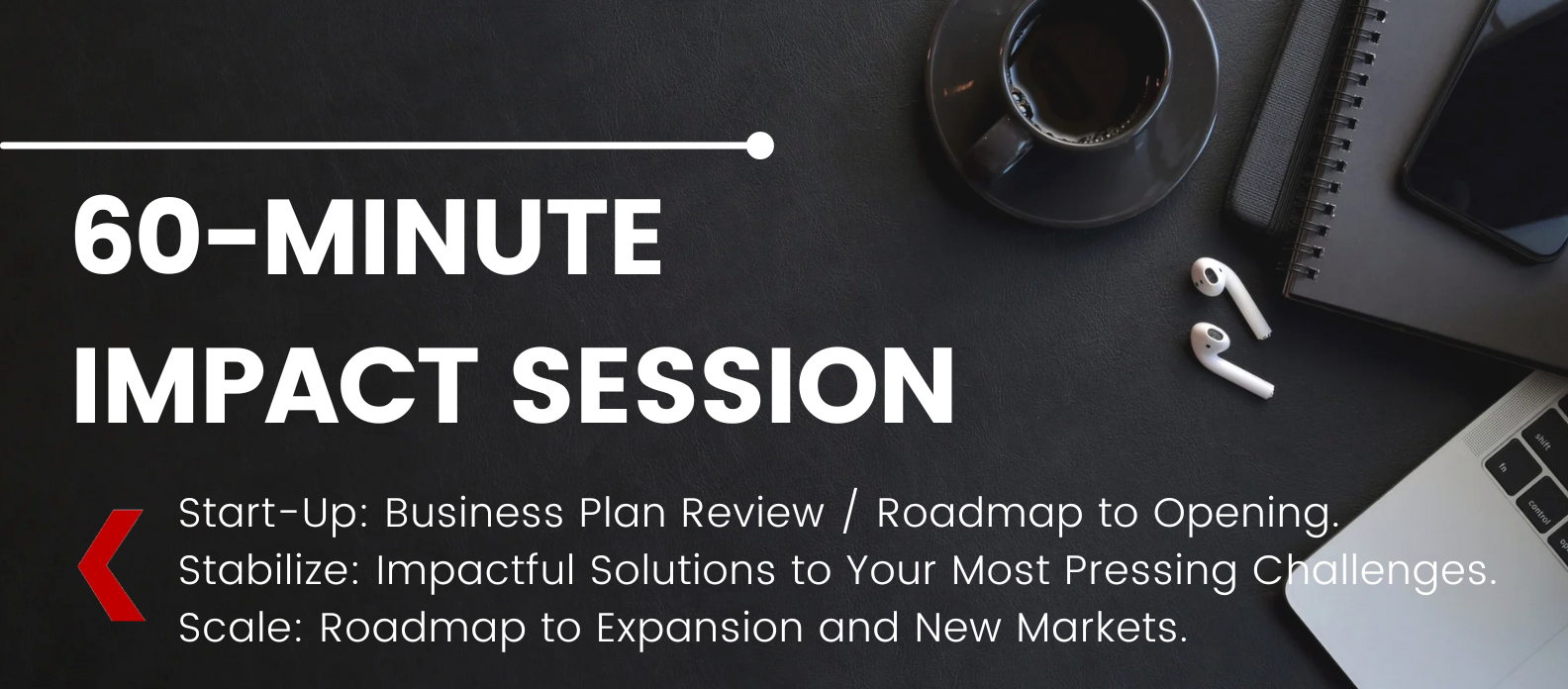
Looking to Start, Stabilize, or Scale? Book Below to Setup a 60-Minute Result-Driven Impact Session.







